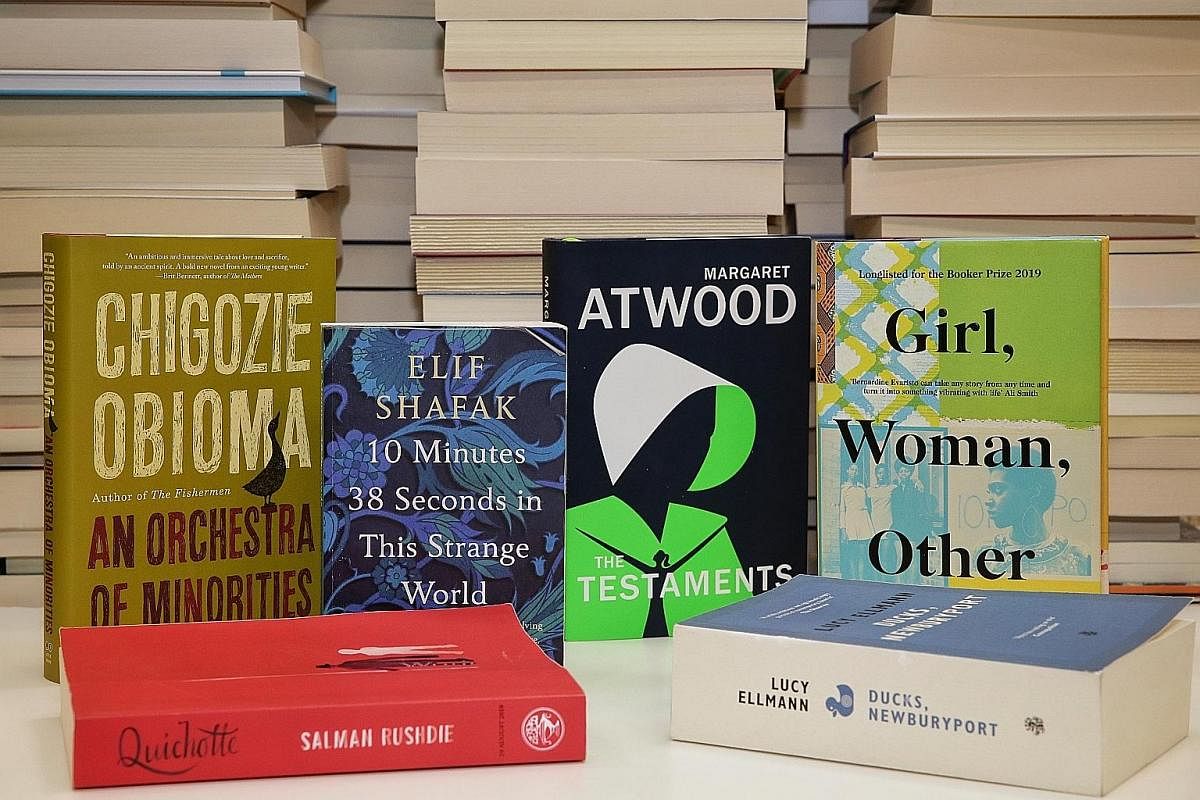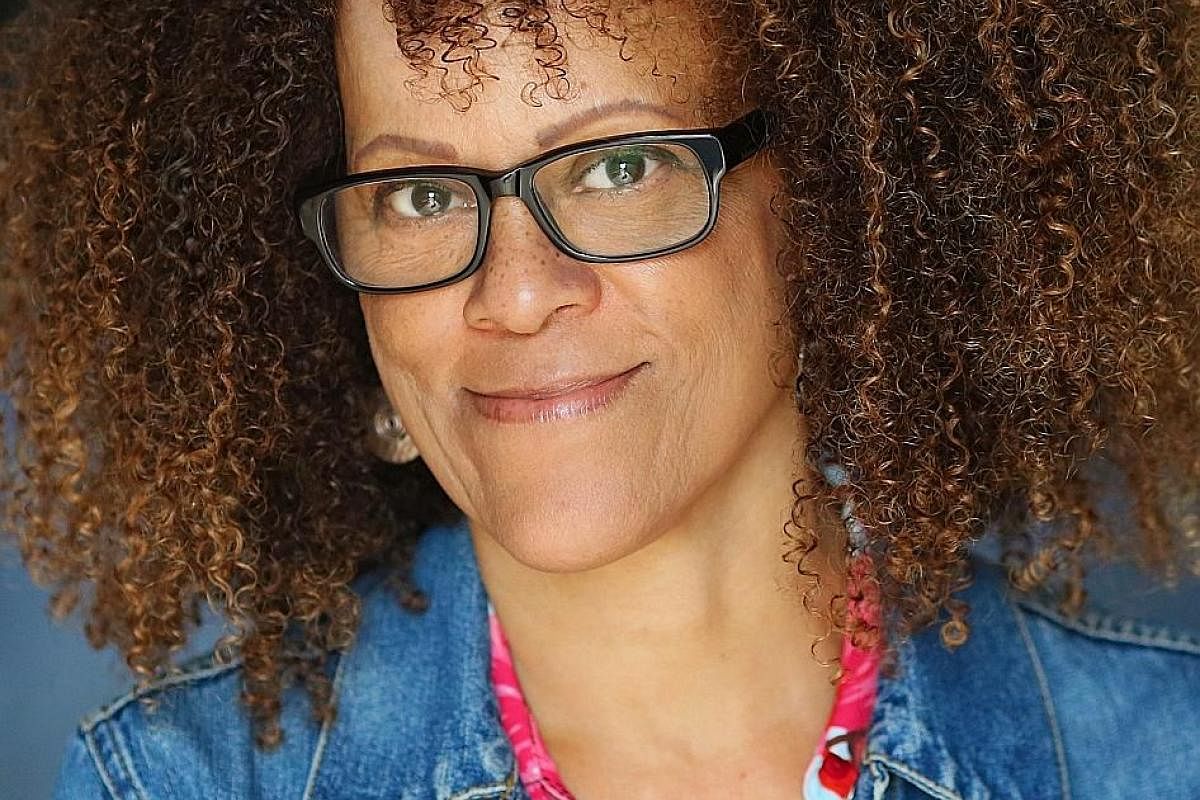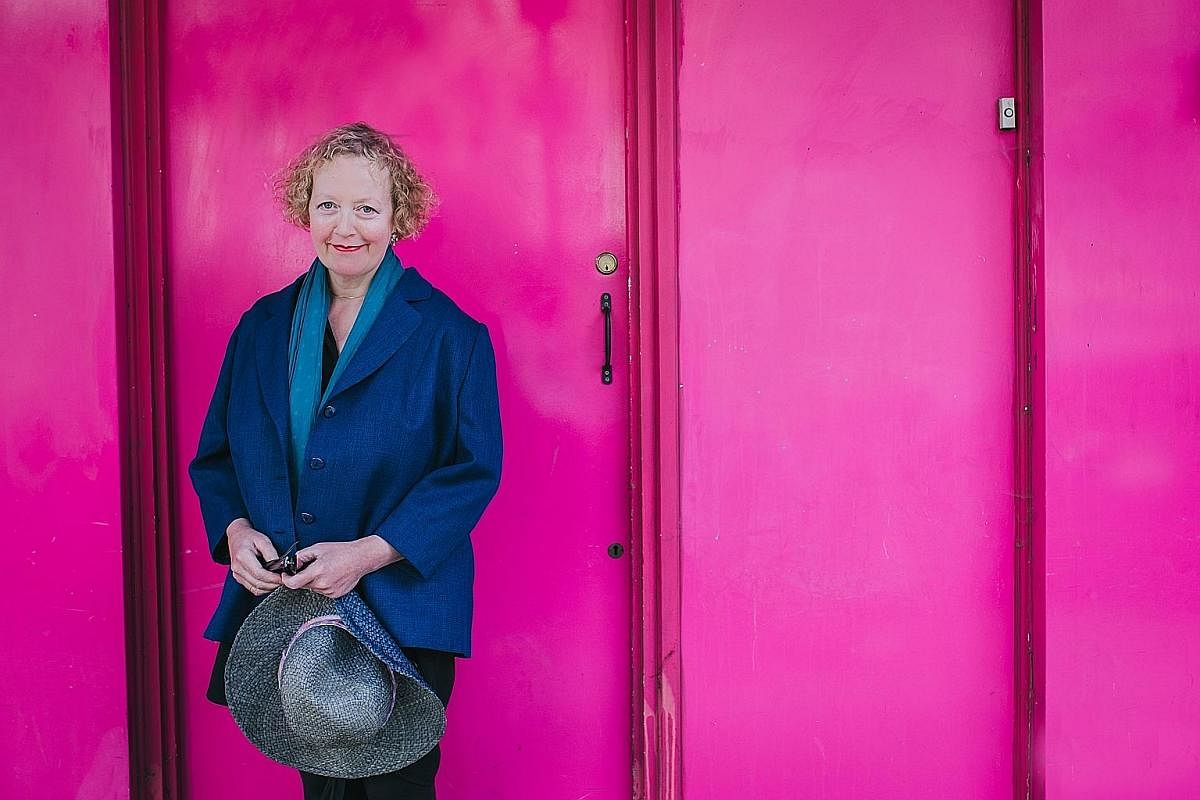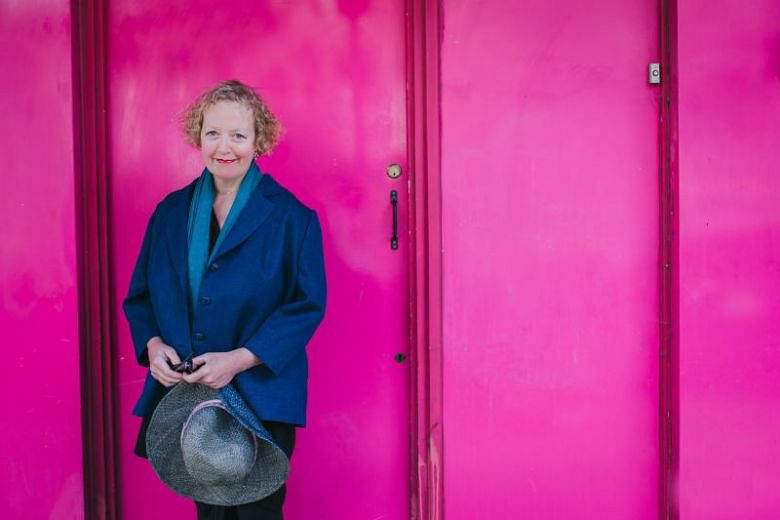There are doorstoppers and then there is Ducks, Newburyport.
It is more than 1,020 pages long and most of that is a single run-on sentence.
"Writing this book nearly killed me," quips Lucy Ellmann, 62. It took her seven years of having no social life and working 12 to 14 hours a day.
While it was in its final revision, she fell and broke her right wrist.
"I think my body had had it with me writing all the time," says the right-handed author in an e-mail interview.
Born in the United States to eminent literary critics Richard and Mary Ellmann, she is now based in Edinburgh.
She has written seven novels - her fourth, Dot In The Universe (2003), was longlisted for the Orange Prize for Fiction - but none has met with the shock acclaim of Ducks, Newburyport, which was rejected by her regular publisher Bloomsbury and later picked up by tiny publishing house Galley Beggar Press.
What was her first reaction on being picked for the Booker?
"Existential dread. No, hilarity and gin and tonics for all.
"I'm just grateful to be on the shortlist - and the longlist. It's a real help to sales. I must admit it's fun to see photos of people reading the book on the New York subway."
Most of the novel is the internal monologue of an Ohio housewife, a mother of four who makes pies.
"I hope the book acts as a pie in the face to preconceptions about what fiction is, how it's constructed, what it's about and what it should be called," says Ellmann, who is married to writer Todd McEwen, with whom she has a daughter.
"Mothers are the centre of the universe and deserve more attention than they usually get."
The book is long, she says, because it has to be.
She says: "I wanted to blanket the reader in stuff, the stuff of American life. Anything shorter would be like offering someone a 10-inch square quilt. That's a cushion, not a blanket.
"I deliberated over everything that went in and where to put it, just like (Japanese tidying-up expert) Marie Kondo might suggest, vis-a-vis your belongings. Not on grounds of 'joy' in this case, but rhythm and relevance."
There is humour in the novel and rage too - against United States President Donald Trump, sexual harassment, the historical massacres of Native Americans and much more.
"Art is not therapy, it's just the best way to think about things," she says. "We do need to express our rage - in non-violent ways.
"I don't believe in being silent in the face of catastrophe."
10 MINUTES 38 SECONDS IN THIS STRANGE WORLD By Elif Shafak

A murdered prostitute lies motionless on a wheelie bin, her purple slingback stiletto heels still on her feet.
"Tequila Leila" might have died, but it takes a while - 10 minutes and 38 seconds - before her brain cells shut down. Each minute brings bursts of smells and tastes from formative moments in her life.
British-Turkish writer Shafak, 47, prides herself in fighting for the rights of women, children and minorities, and her latest novel takes a hard look at the horrors they face in a patriarchal society - through the eyes of Leila, who grows up in Turkey's eastern province of Van.
DUCKS, NEWBURYPORT By Lucy Ellmann

If a traditional narrative involves presenting readers with key aspects of characters' lives to tell a story, Ducks, Newburyport upends this in favour of an unfiltered look into its protagonist's mind.
It does this in a single sentence that runs on for around 1,000 pages, reflecting the stream of consciousness of a middle-aged Ohioan mother-of-four as she ruminates on her insecurities, mortality, family relationships and the state of the world in which she lives, amid an unending list of thoughts, events, wordplay and pop culture references.
It is not an easy read, with the unnamed narrator flitting through countless, seemingly unrelated topics in the span of a single page. Each new or recurring thought is introduced by the phrase: "the fact that".
GIRL, WOMAN, OTHER By Bernardine Evaristo

The Nigerian writer Chimamanda Ngozi Adichie warned against the danger of a single story.
Here, in British author Bernardine Evaristo's astonishing Girl, Woman, Other, are a dozen stories, an irrepressible ode to multiplicity.
Most of the 12 narrators are women - one identifies as non- binary - and most are black.
They range in age from Hattie, a farmer in her 90s, to Yazz, a 19-year-old university undergraduate. They are bankers, teachers and cleaners; lovers, daughters and mothers; from Britain, Nigeria, the Caribbean and more.
AN ORCHESTRA OF MINORITIES By Chigozie Obioma

A poultry farmer's doomed romance with a pharmacist-in-training lies at the heart of Obioma's masterfully composed story set in contemporary Nigeria.
An Orchestra Of Minorities, Obioma's second novel, begins with an encounter between Chinonso, the protagonist, and Ndali, a woman whom he tries to save from jumping off a highway bridge to her watery death. The two eventually fall in love.
Ndali's wealthy family objects to their union because Chinonso is uneducated. To make himself more acceptable to them, he sells everything he has and enrols in university in Cyprus. But when he arrives, he learns that he has been scammed and his life takes a bitterly tragic turn.
QUICHOTTE By Salman Rushdie

Is this the real life? Is this just fantasy? Quichotte, Rushdie's entertaining metafictional novel, muddies the waters between fiction and reality.
The story's eponymous hero is an elderly, television-addled pharmaceutical salesman who falls for a celebrity and goes on a picaresque quest across America to seek her hand.
British-Indian Rushdie, 72, weaves plenty of colour and humour into this novel, his 14th.
THE TESTAMENTS By Margaret Atwood

"History does not repeat itself, but it rhymes," observes a character in The Testaments, the long-awaited sequel to Atwood's seminal 1985 novel The Handmaid's Tale.
The grande dame of feminist dystopia does not repeat herself here, but has produced a tour de force that, while fresh, provides a deft counterpoint to its predecessor.
The testaments of the title are by three women. One, Agnes Jemima, is a girl growing up in the totalitarian Republic of Gilead; another, Daisy, was raised across the border in Canada by liberal parents, but is connected to Gilead in ways she is unaware of.





